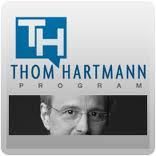 In 1987 the film "Wall Street" summed up the general feeling in Reagan's America with Gordon Gecko's legendary speech that hinged on one phrase.
In 1987 the film "Wall Street" summed up the general feeling in Reagan's America with Gordon Gecko's legendary speech that hinged on one phrase.
"Greed is Good."
That became the private mantra for vulture capitalists and hedgefund managers through to today - and it made a catchy case for "trickledown" Reaganomics.
But that film didn't invent the idea - it just spelled it out.
Seven years before that film came out - from the very beginning of the Reagan era - that idea was applied to every aspect of our society.
Public programs were privatized - and common resources handed over to private corporations.
Reaganomics - the idea that greed is good and profits naturally lead to justice and equality for all - has had a number of dramatic effects on American society.
It's led to the rise of charter schools and for-profit colleges and the decline of public education while student debt has exploded.
It's given us a healthcare system that promotes profits over people - a system where pharmaceutical companies spend more on advertising prescription drugs than on research and development of new and more affordable treatments.
It's lead to the rise of for-profit prisons that create profits out of human misery.
But what Reaganomics didn't create is any shared prosperity.
It has created an unholy amount of wealth - but that wealth is concentrated in the hands of very few - while the vast majority of Americans since the Reagan presidency have seen their standard of living decline.
In 1980 - the richest families only owned about 10% of American wealth - whereas the bottom 90% of families possessed about one third of all the wealth in America.
But now - the families in top one hundredth of one percent own nearly as much as the bottom 90% of families.
At the beginning of the Reagan era - homelessness and poverty exploded - and it didn't decline in any significant way for another 20 years.
And during that whole time, America became more and more infatuated with the lives of the rich and famous than with the plight of the growing throngs of poor and needy.
Most Americans could tell you a lot about the personal lives and even the sex lives of rich people like Kanye West and Madonna - Paris Hilton and Michael Jackson - we became fascinated and obsessed with their mansions - their demons - and every aspect of their lavish lifestyles.
Just look at Donald Trump - who announced he was running for president and saw a huge surge in the polls after saying that he's really rich and that's what the country needs.
In other words - "Greed is Good" and our country needs greedy leaders.
And we've come to see unholy wealth as a sign of, essentially, God's blessing - of "Good".
Even many of our country's religious leaders have cultivated followings on that idea - turn on the TV and take a look at any megachurch's multimillionaire pastor begging for donations to buy another private jet.
But there's one world leader who is speaking - and acting - out against the thinking that greed can lead to justice - that greed is good.
Pope Francis.
This Pope is reminding the world how to live simply through his words and his actions.
One of his first decisions as the head of the Catholic Church was to live in the Vatican guesthouse instead of the papal apartments.
And then there's the humble 1984 Renault that he received as a donation and drives around the Vatican.
And as the leader of the Catholic Church - he's pushed his flock of Bishops to lead by example and live simply as well.
Just last year he removed the so called "bishop of bling" - from his diocese after the bishop spent 43 million dollars on his personal residence.
And earlier today the Pope declined a lunch with Congress in order to feed and eat with the homeless in our nation's capital.
When this Pope spoke to grassroots organizers in Bolivia earlier this summer he bluntly called the "unfettered pursuit of money" the "dung of the devil".
In other words - greed is NOT good - greed's the "dung of the devil".
The Pope is reminding America and the world - that multiple mansions - the Olympic-sized swimming pools - the yachts and the private planes - these are not what we should be paying attention to - and the people who own those things aren't idols.
He's reminding us that the endless pursuit of profit and the monetization of everything are not ways to achieve justice and equality for all.
That we cannot worship Mammon - the almighty dollar - if we want to help our fellow man and make a more prosperous society for everyone.
And he's right - it's time to go back to our society's founding principles - to orient our principles in a way that uplifts the poorest among us - to start putting people before profits - and to foster a truly just and equal society.



